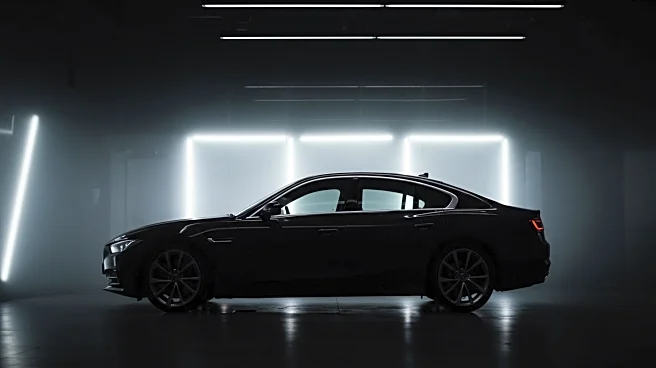What's Happening?
Lincoln's product roadmap is facing uncertainty due to tariffs and a shift towards electric vehicles. The automaker plans to reduce its lineup as it pivots to EVs, impacting its ability to import additional models to the U.S. Dealers are expressing a desire for more Lincoln products, but the current economic and trade environment complicates these plans. The focus on electric vehicles aligns with broader industry trends, but tariffs pose a significant hurdle.
Why It's Important?
Lincoln's strategic shift reflects the automotive industry's broader transition towards electric vehicles, driven by consumer demand and regulatory pressures. However, tariffs on imported models could limit Lincoln's market offerings, affecting its competitiveness and dealer satisfaction. This situation underscores the challenges automakers face in balancing innovation with geopolitical and economic factors. The outcome could influence Lincoln's market position and its ability to meet evolving consumer preferences.
What's Next?
Lincoln will need to navigate the complexities of tariffs and EV development to maintain its market presence. This may involve strategic partnerships, domestic production adjustments, or lobbying for favorable trade policies. The automaker's ability to adapt to these challenges will be crucial in sustaining dealer relationships and consumer interest. Industry observers will watch how Lincoln and other automakers respond to these pressures in shaping their future product strategies.











